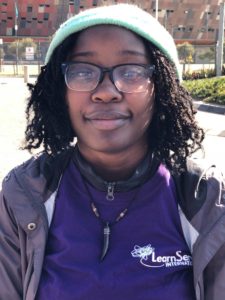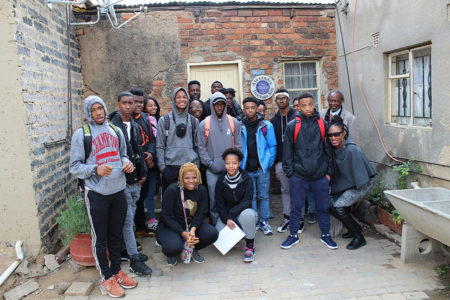 Tuesday, June 26 – Molo to every reader,
Tuesday, June 26 – Molo to every reader,
Molo is a greeting in Xhosa, which is the tribe of the late Nelson Mandela, the first black president of South Africa. In America, Mandela is often credited with ending Apartheid in South Africa and supporting the plight of black and colored South Africans for freedom. My AP World History class was no exception. When talking about Apartheid, Nelson Mandela was often brought into the conversation as the great savior that inspired the people to rise up against their white oppressors and take ownership of their own land. However, in South Africa, Mandela is not so divine. While South Africans do not regard him as a saint, he is still an icon. He is often praised for bringing political power to black South Africans but is criticized just as often for allowing the economic power to still reside with the white minority.
South Africa’s economic disparities are drastic and clearly visible. Today we visited three residential areas, Alexandra, Houghton, and Sandton that clearly demonstrated this racially driven economic inequity. While Houghton (a predominantly white neighborhood) is one of the wealthiest neighborhoods in South Africa, comprised of luxurious mansions, Alexandra is one of the largest townships in Johannesburg, made up of rusted, corrugated tin shacks called shanty towns. The idea that in South Africa – a nation with a 76.4% black population – only 2% of black South Africans live in Houghton but at least 950 black families per square mile live in a township like Alexandra is a bit dismaying.

I come from Nigeria which also has a booming economy in oil but has high levels poverty due to lasting effects of colonization. Yet the difference in South Africa is that it is a completely racial inequity, not an economic distribution inequity. Nelson Mandela once said, “The purpose of freedom is to create it for others.” I feel like he did that through the increase of political dominance by the ANC, but the ANC from my perspective has not served as an institution of progressive change in education.
The ANC recently passed land redistribution legislation to give land back to black South Africans but I don’t feel like this will be enough after my experience in Alexandra. Only 10% of high school graduates from Alexandra will be able to matriculate to college. I believe that to solve this economic divide, we need more townships like Alexandra to receive more funds for education in order to increase college graduation rates, decrease poverty levels, increase employment rates, and bridge the racial economic divide between black, colored and white South Africans. Racial disparities affect many areas in South Africa from economics to politics which I feel can be solved through better education legislation.
Chetachukwu O., Benjamin Banneker Academic High School

One thought on “LearnServe South Africa 2018, Day 1: Molo to Every Reader”
Thank you, Che! I appreciate your insight and policy evaluation. Hopefully, you can tell your AP World History teacher all about your trip and work with her to create a better lesson on Nelson Mandela and South Africa. Have a meaningful rest of your trip and I hope to see more blog posts from you!